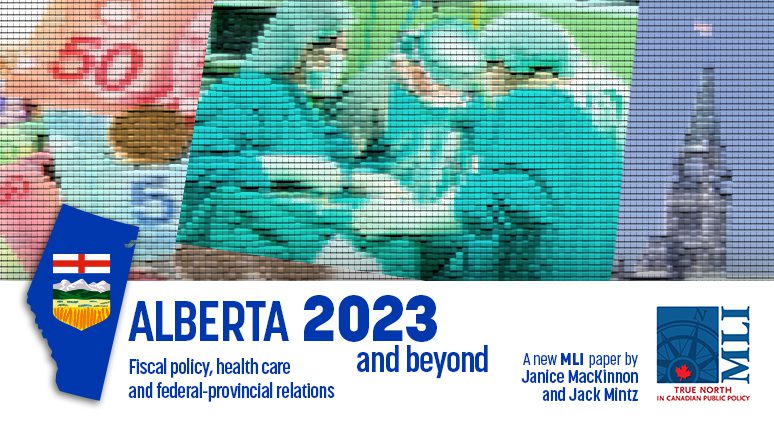OTTAWA, ON (January 26, 2023): In recent years, the government of Alberta has made important and challenging decisions to better secure the province’s future. The results have been positive: reduced spending, restructured health care and post-secondary education, and initiatives that have led to economic growth, diversification, and high levels of in-migration. Nonetheless, more can be done.
In this paper, titled Alberta 2023 and beyond: Fiscal policy, health care and federal-provincial relations, Janice MacKinnon and Distinguished Fellow Jack Mintz examine the state of Alberta in 2023 and provide several policy recommendations for the forthcoming and future Alberta budgets.
They suggest the Alberta government should set “fiscal anchors” in its upcoming budget – specifically, no deficits, a target level of debt relative to GDP and limiting growth in spending to population and prices. This would be followed by paying down debt or investing non-renewable resource revenues into an Alberta Health Plan.
The government should also seek efficiency and productivity improvements in its delivery of public services, shifting its mix of taxes to rely more on those levies having the least economic cost.
“New opportunities will arise with a more diversified economy,” note the authors. “Alberta is an entrepreneurial society – and its main hope lies with its people to choose the best path forward.”
In health care, MacKinnon and Mintz propose revamping seniors care, moving more procedures to clinics, encouraging more virtual care, reducing costs and wait times for care, and assessing alternative sources of health care revenue, including possibly a co-payment system.
With regard to advanced education, they suggest Alberta needs to encourage more young people to remain in the province for post-secondary education, and enhance training and retraining programs and reduce barriers to in-migration by doing more to recognize professional credentials.
On climate change, MacKinnon and Mintz recognize that both federal and provincial governments share jurisdiction over the environment; the provinces have jurisdiction over natural resources and Ottawa has powers to implement policies deemed to be in the national interest. As they go on to say, “successfully reducing emissions requires cooperative federalism, whereby both levels of government work together to achieve common goals and respect each other’s jurisdiction.”
Finally, the authors recommend that the province also address its high personal income tax rates, arguing that they discourage work effort, investment, and risk-taking. Instead, the government could reform its taxes by repatriating the federal fuel charge and levying its own made-in-Alberta carbon pricing system or, alternatively, raise revenues by levying a health premium or an Alberta sales tax harmonized with the GST.
“The demand for decarbonization that is now unfolding will confront Alberta with its biggest challenge in the past century,” conclude MacKinnon and Mintz. “The fiscal decisions that the provincial government makes in the next several years will have a significant impact on Alberta’s prosperity in decades to come.”
To learn more, read the full paper here:
***
Janice MacKinnon is a former Saskatchewan NDP finance minister and current professor of fiscal policy at the University of Saskatchewan School of Public Health.
Jack Mintz is the President’s Fellow at the University of Calgary’s School of Public Policy and Distinguished Fellow at the Macdonald-Laurier Institute.
For further information, media are invited to contact:
Skander Belouizdad
Communications Officer
613-482-8327 x111
skander.belouizdad@







